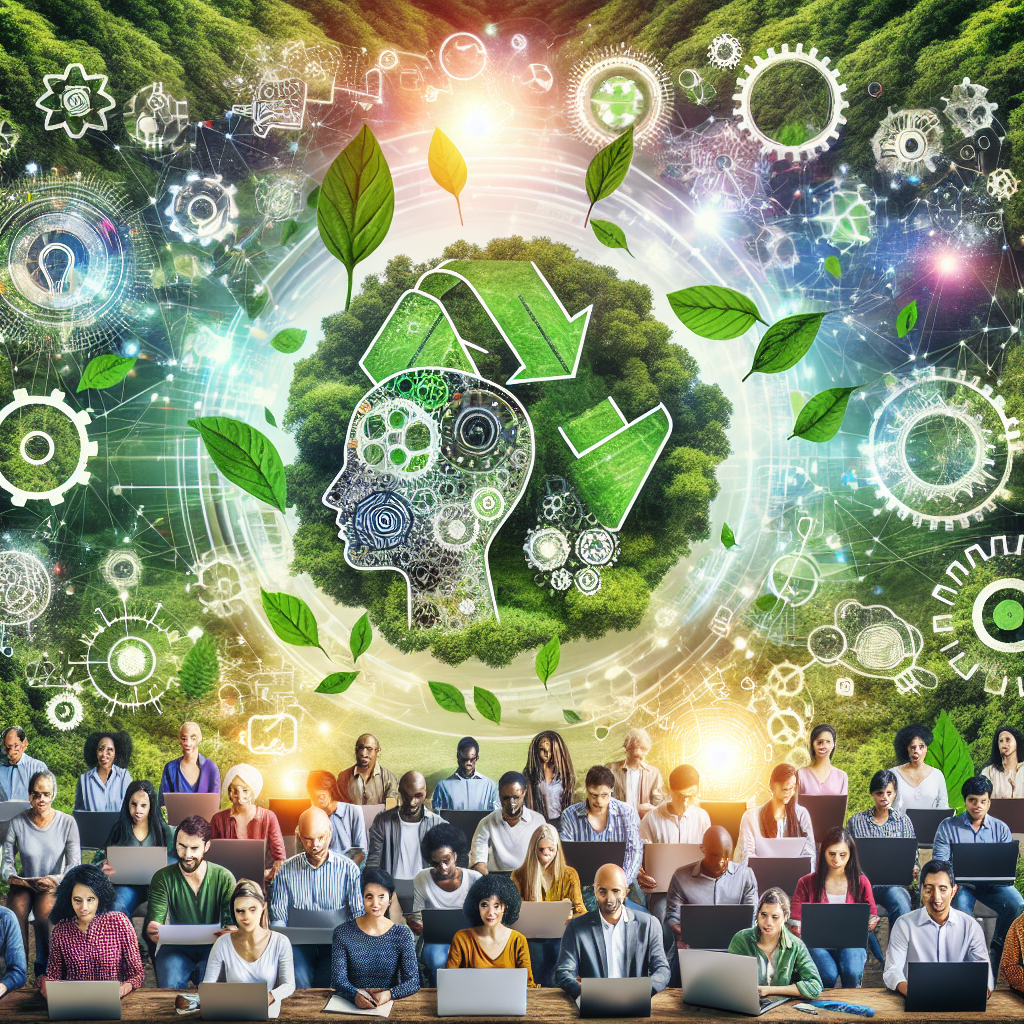[ad_1]
As the world grapples with climate change and environmental degradation, innovative solutions are increasingly needed to promote sustainability. Artificial Intelligence (AI) stands out as a transformative force in this quest, enabling organizations and individuals to adopt more responsible practices to protect our planet.
Understanding AI and Sustainability
Before delving into how AI can drive sustainability, it is vital to understand both concepts:
- Artificial Intelligence (AI): A branch of computer science focused on creating systems that can perform tasks typically requiring human intelligence, such as learning, reasoning, and problem-solving.
- Sustainability: The practice of meeting present needs without compromising the ability of future generations to meet their own needs, encompassing environmental, social, and economic dimensions.
How AI is Revolutionizing Sustainability
AI can play a significant role in various sectors to promote sustainability. Here are some key areas:
1. Energy Management
AI systems enhance energy management by optimizing consumption and improving efficiency.
- Smart Grids: Use AI to predict energy demand and manage distribution effectively.
- Renewable Energy Optimization: Analyze weather patterns to predict energy production from sources like solar and wind.
2. Waste Management
Efficient waste management systems are crucial for reducing landfill waste:
- Predictive Analytics: Utilize AI to forecast waste generation and optimize collection routes.
- Smart Sorting: AI-driven robots can sort recyclable materials from waste efficiently.
3. Agriculture
AI can significantly enhance sustainable agricultural practices:
- Precision Farming: Use AI to analyze soil conditions, crop health, and weather to optimize resource usage.
- Drone Technology: Employ drones equipped with AI to monitor large fields and assess crop health.
4. Water Conservation
Water is a vital resource; AI can help conserve it:
- Leak Detection: AI can monitor pipelines to detect leaks and minimize water loss.
- Irrigation Optimization: Smart systems use AI to adjust watering schedules based on weather forecasts and soil moisture levels.
5. Urban Planning
Creating sustainable cities is a priority for the future. AI contributes by:
- Traffic Management: Smart systems analyze traffic data to reduce congestion and pollution.
- Resource Allocation: AI can optimize the placement of green spaces and public transportation.
Data Insights
To support AI-driven sustainability practices, vast amounts of data must be collected and analyzed. Here are some statistics demonstrating the impact:
| Sector | Potential Energy Savings | CO2 Reduction Potential |
|---|---|---|
| Energy Management | 20-30% | 1.5 billion tons/year |
| Agriculture | 15-25% | 2.5 billion tons/year |
| Waste Management | 30-40% | 500 million tons/year |
| Water Conservation | 25-35% | 200 million tons/year |
Challenges and Considerations
While AI offers immense potential for promoting sustainability, certain challenges must be addressed:
- Data Privacy: Safeguarding personal data while using AI tools is crucial.
- Access to Technology: Ensuring equitable access to AI technologies across different regions is necessary.
- Energy Consumption: The energy required to power AI systems can sometimes contradict sustainability goals, necessitating energy-efficient AI solutions.
Case Studies of AI and Sustainability
1. Google’s AI for Energy Efficiency
Google employs AI to optimize energy usage in its data centers, achieving a 40% reduction in energy consumption.
2. IBM’s Green Horizon Project
IBM uses AI to analyze environmental data, helping cities implement sustainable practices tailored to their specific needs.
3. The Ocean Cleanup Project
This initiative utilizes AI to track plastic pollution in oceans and optimize cleanup efforts.
Conclusion
AI-driven sustainability represents a powerful intersection of technology and environmental responsibility. As organizations increasingly integrate AI into their practices, the potential to address pressing environmental challenges grows significantly. By leveraging AI’s capabilities, industries can strive toward a sustainable future while balancing innovation and ecological stewardship.
Frequently Asked Questions (FAQ)
[ad_2]
